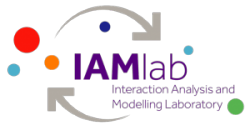We are very pleased that our paper on the exploration of the complexity and distinguishability of web pages for people with autism has been published at Universal Access in the Information Society!
Sukru Eraslan, Yeliz Yesilada, Victoria Yaneva and Le An Ha. 2020. “Keep it Simple!” An Eye-tracking Study for Exploring Complexity and Distinguishability of Web Pages for People with Autism. Universal Access in the Information Society (SCI-E, SSCI). DOI: 10.1007/s10209-020-00708-9
Abstract: A major limitation of the international well-known standard web accessibility guidelines for people with cognitive disabilities is that they have not been empirically evaluated by using relevant user groups. Instead, they aim to anticipate issues that may arise following the diagnostic criteria. In this paper, we address this problem by empirically evaluating two of the most popular guidelines related to the visual complexity of web pages and the distinguishability of web-page elements. We conducted a comparative eye-tracking study with 19 verbal and highly independent people with autism and 19 neurotypical people on eight web pages with varying levels of visual complexity and distinguishability, with synthesis and browsing tasks. Our results show that people with autism have a higher number of fixations and make more transitions with synthesis tasks. When we consider the number of elements which are not related to given tasks, our analysis shows that they look at more irrelevant elements while completing the synthesis task on visually complex pages or on pages whose elements are not easily distinguishable. To the best of our knowledge, this is the first empirical behavioural study which evaluates these guidelines by showing that the high visual complexity of pages or the low distinguishability of page elements causes non-equivalent experience for people with autism.
